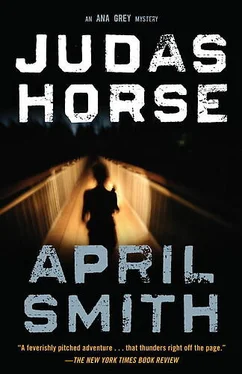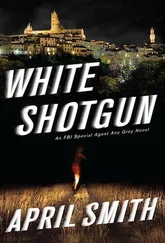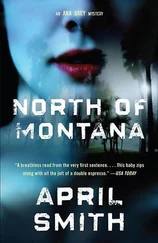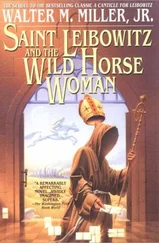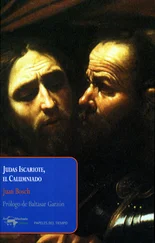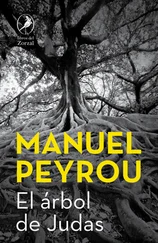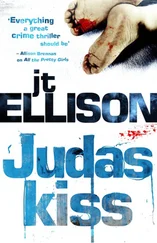“Here he is!” I exclaimed as Steve Crawford, ramrod straight and youthfully muscled beneath the tight polo shirt, emerged from the crowd. I introduced him as “my boyfriend,” which sounded soft and girlish and out of sync in that military environment.
Steve and I smiled at each other encouragingly. I had tried to prep him, but my convoluted descriptions of Poppy’s hot-and-cold behavior only made him totally uptight, afraid to step on a land mine. As a result, Steve drew up tall and presented as a locked-jaw FBI newbie — exactly the kind of condescending fed who rolled over Poppy on the job.
I noticed I had stopped breathing when they shook hands.
“My folks don’t get here until tomorrow. Let me treat you to dinner, Lieutenant Grey,” Steve offered.
“My treat. You two are the star graduates,” my grandfather added resentfully, eyeing us back and forth.
It was early evening when we pulled into Fredericksburg, the sun a fireball behind the hickory trees. We crossed a bridge where flame-tinged water dragged over shallows of black stones.
I had been to town only once, for somebody’s birthday, even though it was just twenty minutes from the Academy. We had so much studying, we rarely left. The Board Room, a cafeteria by day, became a full-on bar at night, in order to minimize the need for outside contact.
The tidy Colonial churches and side-gabled homes in the historic district of Fredericksburg were enchanting — until you got out of the car and staggered through the lifeless heat. All the quaint little stores were closed. Poppy, Steve, and I moved at half speed, but not fast enough to avoid a plaque at the site of a famous five-and-dime store, where, back in the sixties, a young African-American woman had been the first to sit at a white’s-only lunch counter.
My stomach was hurting even before Poppy went into a tirade about “good-for-nothing blacks.” I prayed none of the midwestern tourists, materializing slowly out of the spongy air, could hear his words.
But Steve did.
“If you don’t mind, sir, I don’t appreciate that kind of talk. I have a cousin married to an African-American doctor, and he’s a terrific guy.” “I used to be like you,” my grandfather replied, “until I was a patrol officer in the worst neighborhood in Los Angeles.” “We don’t want to hear it, Poppy,” I said.
I was only in my twenties, not far removed from a childhood that had been dominated by his self-important anger. It buffered him from fears and losses too astringent for his macho taste — instead, the acid curled inside my gut. I had become so entwined in his emotions as a child that my role in life had been fixed as the vessel for holding the things that he despised and cast away.
There, on that brick sidewalk in Fredericksburg, Virginia, secretly brushing hands with the first young man for whom I’d had real feelings, I hated my grandfather. I hated to be stuck in this world with him. I felt ridiculous. At the Academy, I was myself, big and three-dimensional and real; now I was stuck on this historic street in someone else’s history, three figures in a sweltering diorama, a shoe-box Colonial miniature like you make in school.
Steve raised an eyebrow and gave a grim shrug. Poppy seemed unaware. He was looking in the window of the Scottish Center, where stuffed cats were wearing kilts. Nothing affects him, I thought bitterly. When I looked again, he had wandered down the street to some god-awful military store. Headless torsos were dressed in U.S. Army uniforms. There was a Life magazine from 1945 featuring Audie L. Murphy.
“See this guy? He did his part.” Implying that we didn’t?
“Audie Murphy was the most decorated soldier in the U.S. forces,” Steve agreed, mustering respect.
Poppy turned away, somehow offended.
I looked at my watch. It was barely 5:30. Time had slowed in the impassive heat.
“I think the restaurant is open now.”
On the advice of a middle-aged Academy librarian, who seemed, in her silk bow-tie blouses and wool skirts, closest to Poppy’s aesthetic, we had chosen La Petite Auberge. Inside, it was cool and dark, the air-conditioning a sensual pleasure. There were silver candle lamps with fluted glass shades, white latticework walls, and oil paintings of dogwood trees. Half a dozen well-heeled couples had come in for the early specials. They all knew the waiters; it was, after all, a living small town. Now we were like them — three people seated at a table in a nice French restaurant, none of whom can fathom why they are together.
Steve and I ordered Cokes, which came with lime and lots of ice in a narrow bar glass that contained the sweet carbonation perfectly. The dinner rolls were soft and fluffy white. Things were looking up. Steve’s thigh, hard inside the perfectly creased dress slacks, edged reassuringly close to mine.
Poppy decided the following day would be an excellent time to visit Manassas National Battlefield Park, forty miles away.
I protested. “Tomorrow is graduation.”
“Not until three-thirty in the afternoon, according to the schedule.” “I have to get ready.”
“How long does it take you to get ready?”
“I want to take the morning off, and pack, and take a shower and—” “I came all the way out to the other side of the country to find Joseph Grey.” “Is he a relative?” Steve asked genially.
“A dead one. Poppy thinks he has a great-great-uncle who fought for the Union and died in the first battle of Manassas. So he wants to go there.” I rolled my eyes.
“Can’t you find old Joseph on a computer?” Steve suggested.
“A computer is not the same as being present on a field of honor. What is wrong with you?” “Sorry, sir.”
“No need to be sorry,” I murmured as a waiter in a white dinner jacket offered the appetizers.
I took a glistening bite of a farm-fresh tomato with onions and tarragon.
“How about we drive up to Baltimore and see the Orioles instead?” “No, ma’am,” Poppy replied. “We are on a mission.”
I groped Steve’s hand under the table. It was damp.
“Sir, you should know that Ana and I are serious.”
“Serious what?” He scraped the bottom of his bowl of mushroom soup.
“We care for each other and we want to get married.”
Poppy shocked me by simply asking, “When?”
It threw us both off. “Well,” said Steve, coloring red, “we don’t know exactly when. We just haven’t set a date. One day, I’ll wake up and I’ll turn to Ana and say, ‘Let’s get married.’” “So in the meanwhile, you’re shacking up, is that what you’re saying?” “No, sir—”
“We’re planning to get married in the chapel at the Academy,” I interjected quickly.
“Aren’t you the one who said that soon-to-be Special Agent Crawford has been assigned to Miami and you’ll be in L.A.?” “Yes, but—”
“I’m just a dumb cop, so explain to me. Exactly which bed is it where Special Agent Crawford turns to my granddaughter and says, ‘Let’s get married’? Because I can’t figure anything but a Motel 6 in the middle of Texas.” “One of us will be reassigned.”
“And that’ll be who?”
“We don’t know who,” I said.
“It’ll be you, that’s who,” said Poppy. “When it comes down to it, he’ll be like any man; he’ll say, ‘My job is more important. You’re only the wife .’” “So what?” Steve said angrily. “If we love each other.”
“You’d ask me to give up my career?”
“Not give it up.”
“But — what?”
“We’ll work it out,” said Steve.
“How?”
He didn’t answer. He didn’t know.
My mouth had set in that shut-down way. Steve was watching with distaste. He’d never seen that expression on my face. It made me look like Poppy.
Читать дальше
